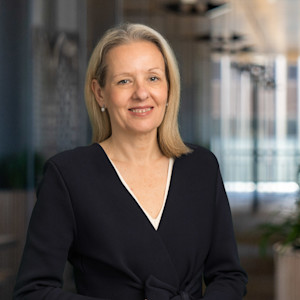Relationship separations that occur overseas can place a large amount of pressure on expatriate couples, especially if one person has relocated internationally to support their spouse. It is not uncommon for one party to find themselves without access to funds required for day-to-day living expenses, as well as struggling to cover legal costs.
In Singapore, only married couples can make a claim for maintenance. In Australia, you do not need to be married to seek spousal maintenance — if you and your partner are not married, you will need to demonstrate that you were in a de facto relationship.
What is spousal maintenance?
Spousal maintenance is a type of financial support. Countries such as Australia, Singapore, the UK, and Hong Kong all recognise that, in some circumstances, it may be necessary for a person to pay maintenance (also known as alimony) to their former partner.
It is common for courts in Singapore and Australia to order that maintenance be paid in monthly installments or by way of a single lump sum.
How do courts decide on an appropriate amount of spousal maintenance?
When making an order for maintenance, Singaporean courts will have regard to the financial needs of the parties, any physical or mental disabilities, the age of the parties, the length of the marriage, the parties’ contributions, and the standard of living enjoyed during the marriage.
Australian courts consider a similar range of factors, as well as each person’s ability to work.
A significant difference between the two jurisdictions is that both men and women can claim spousal maintenance in Australia. However, in Singapore men can only claim spousal maintenance if they have been incapacitated by illness or a physical/intellectual disability.
How long can a spousal maintenance order last for?
In Australia, spousal maintenance orders are generally a short-term solution for a person with little or no access to funds. A spousal maintenance order will typically last for a few years.
Courts in other jurisdictions (including Singapore) are more likely to make ongoing spousal maintenance orders that do not have a certain expiry date.
A recent case in the UK made headlines when a wife returned to court, 15 years after final orders were made, seeking an increase in her annual maintenance sum. The wife had received sufficient funds to purchase a property, but had subsequently entered into what the court deemed “a series of unwise transactions” resulting in a need to pay rent.
The Court of Appeal agreed to increase her husband’s annual spousal maintenance payments by more than £4,000 before the Supreme Court overturned the decision. Nonetheless, the original maintenance order will remain until the wife remarries or a further court order is made.
Can I apply for maintenance overseas and register the order or agreement in Australia?
The Australian Government allows the registration of spousal maintenance agreements in reciprocating jurisdictions, which include Singapore, Hong Kong, the USA, the UK, and Malaysia.
Which forum is best for me?
The most appropriate jurisdiction for any matter will depend on a number of factors. As outlined above, different countries have significantly different approaches to the payment of spousal maintenance. It is important to seek legal advice as soon as you separate because limitation periods apply in some jurisdictions.
About Lander & Rogers
The Lander & Rogers Family & Relationship Law group is Australia’s largest team of Family Law Accredited Specialists. We offer discreet and practical advice to suit your specific relationship needs and circumstances.
If this scenario resonates with you, please contact us on +61 3 2969 9000. With Lander & Rogers, you gain access to a leading provider of family law services in Australasia and internationally. We provide expertise in international relationship and family law matters, including international property, alimony, child support, and relocation regulations. Our lawyers are Accredited Specialists and qualified mediators, and we have strong alliances with international firms throughout Singapore, Hong Kong and the rest of Asia, the USA, and Europe.
This article was first published in ANZA Singapore on 17 January 2019. The ANZA Singapore version of this article is available here.
All information on this site is of a general nature only and is not intended to be relied upon as, nor to be a substitute for, specific legal professional advice. No responsibility for the loss occasioned to any person acting on or refraining from action as a result of any material published can be accepted
All information on this site is of a general nature only and is not intended to be relied upon as, nor to be a substitute for, specific legal professional advice. No responsibility for the loss occasioned to any person acting on or refraining from action as a result of any material published can be accepted.
 Client portal
Client portal












